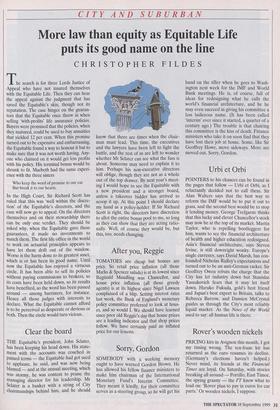Urbi et Orbi
POINTERS to his chances can be found in the pages that follow — Urbi et Orbi, as I reluctantly decided not to call them. Sir Alan Walters says that the best way to reform the IMF would be to put it out to grass, and the second best would be to stop it lending money. George Trefgarne thinks that this lucky and clever Chancellor's stock may now be at the top of its market. Martin Taylor, who is repelling bootleggers for him, wants to see the financial architecture of health and higher education redesigned. Asia's financial architecture, says Steven Irvine, is still downright wonky. Europe's single currency, says David Marsh, has con- founded Nicholas Ridley's expectations and turned out to be an anti-German racket. Sir Geoffrey Owen rebuts the charge that the City has let industry down but Stanislas Yassukovich fears that it may let itself down. Haruko Fukuda, gold's best friend and Japan's best export to Britain, talks to Rebecca Barrow, and Damien McCrystal guides us through the City's most reliably liquid market. As the News of the World used to say: all human life is there.


























































































 Previous page
Previous page